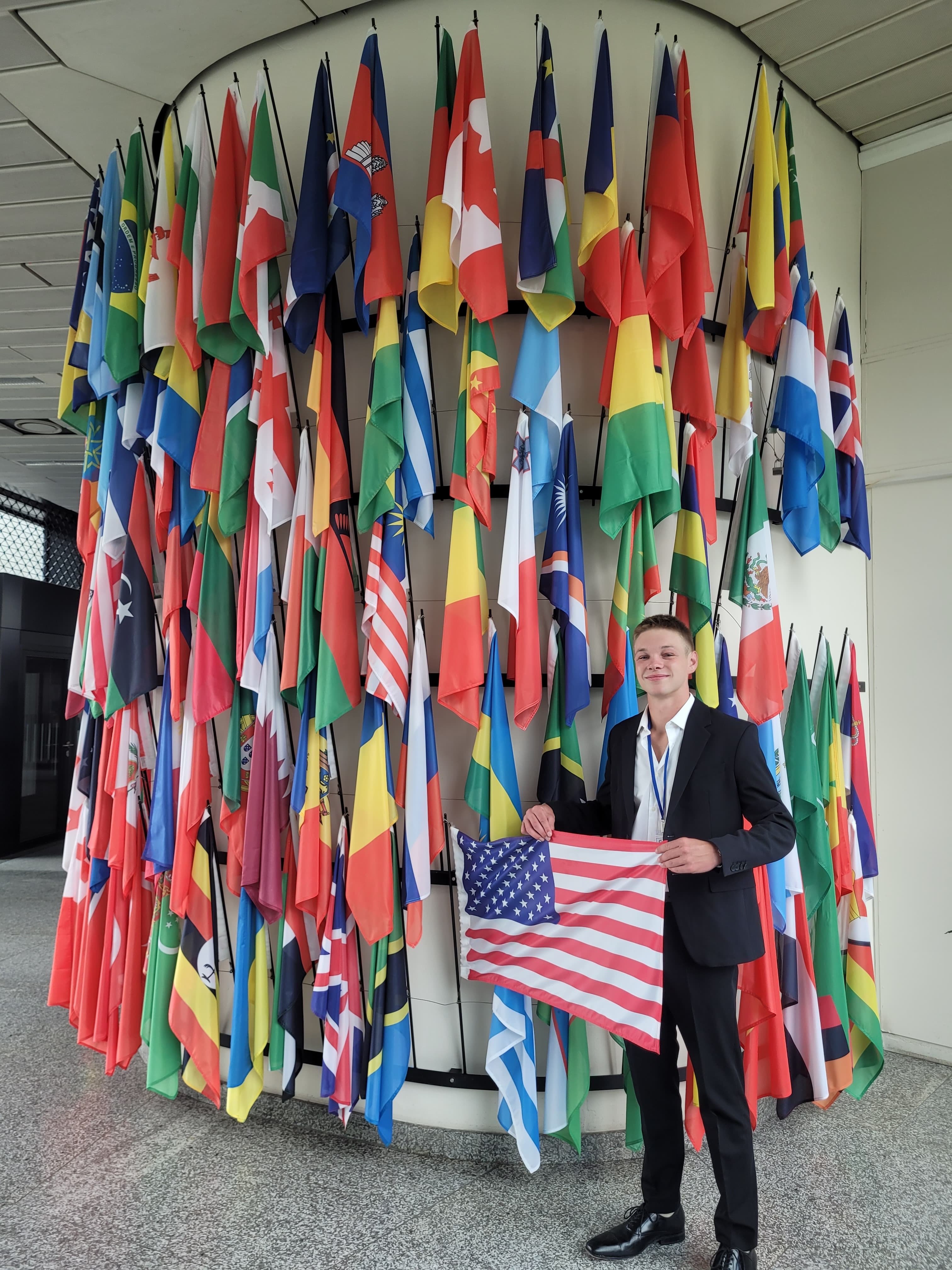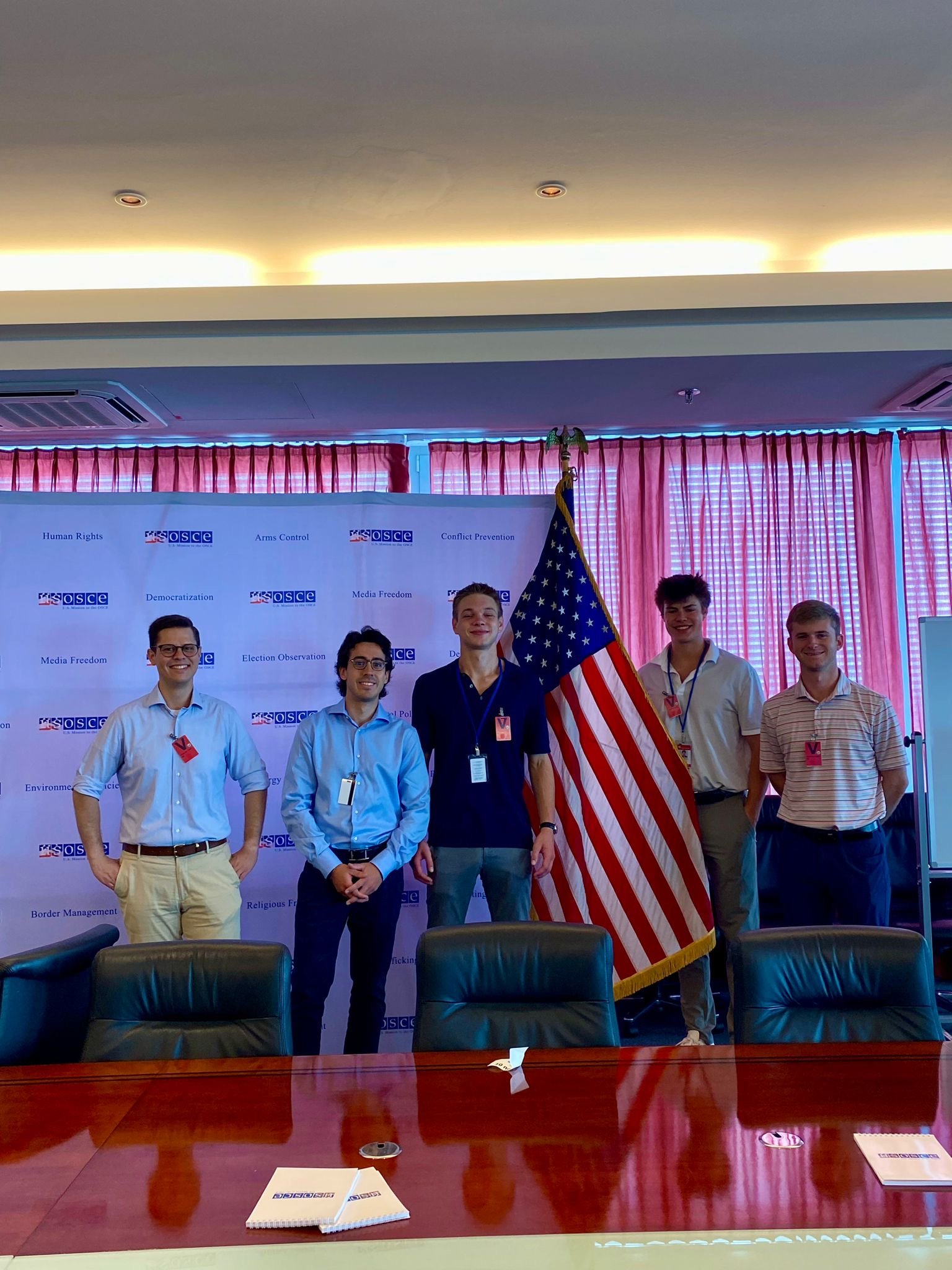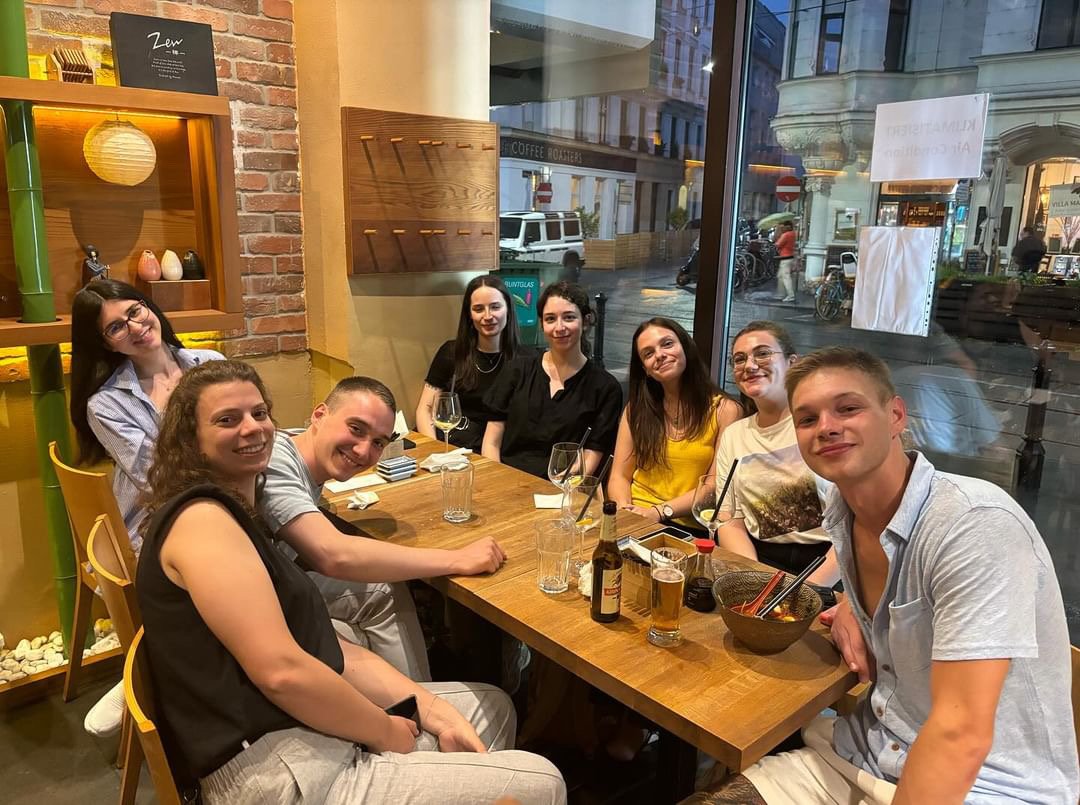Study Abroad Program on Transnational Organized Crime
Hello, I'm Jack Ransom, a 22-year-old criminology student from the United States of America. I am currently enrolled at the University of Alabama and interning at the Alliance of NGOs on crime prevention and criminal justice, a co-organizer of the summer school. I recently had the pleasure of attending the UNODC Summer School on Transnational Organized Crime starting June 6th, 2024. The experience was informative and exciting as I furthered my knowledge of criminology, associated topics, and typical daily United Nations operations. I was able to hear passionate professionals share their field and experiences in their specific areas of the United Nations and criminal research while collaborating with peers who shared my interest in the topics. During time not spent on the United Nations grounds, activities and tours were organized, allowing me to experience Vienna and Eastern European history. Throughout this short essay, I will summarize my experiences in the program and the wealth of knowledge I have acquired.
The most informative and valuable aspect of my time in the UNODC Summer School on Transnational Organized Crime was the wealth of professionals who volunteered their time to give presentations in their area of criminology. On June 10th, we heard from Ms. Renata Delgado-Schenk, UNODC, as she gave a presentation delving into the intricate field of cybercrime. She provided insights into law enforcement operations, strategies, and the practical aspects of combating organized crime. In the afternoon, we visited Brigade General Gerald Tatzgern at the Austrian police headquarters. Mr. Tatzgern heads the Criminal Investigations Department on Migrant Smuggling, THB, Specia Investigations, Benefit fraud, illegal gambling, Visa fraud, and Intelligence. During his presentation, he provided firsthand exposure to law enforcement operations, strategies, and the practical aspects of combating organized crime.
June 11th through the 12th were busy but intriguing days at UNODC Summer School. Ms. Margot Denier was pivotal in introducing SHERLOC, the UNODC's knowledge sharing portal. Her session covered the platform's features, databases, and practical applications. Ms. Denier then introduced an assignment that gave me an opportunity to be published in SHERLOC. In the following session, Dr. Yuliya Zabyelina shifted the focus to the causes and facilitating conditions of organized crime. Dr. Zabyelina explored the underlying factors that contribute to criminal networks and transnational criminal activities while providing me with a deeper understanding of the enabling factors that contribute to the ongoing development of Transnational Organized Crime. Dr. Zabyelina presentation was a perfect segue into Mr. Colin Craig's session, which was centered on the United Nations Convention against Transnational Organized Crime. Understanding UNTOC is crucial to international cooperation in combating organized crime. The latter half of June 12th was filled with Dr. Thomas Pietschmann. Dr. Pietschmann's session focused on measuring drug trafficking and the World Drug Report, providing insights into methodologies, data collection, and risk analysis specific to narcotics. His insights provided a foundation for understanding illicit drug markets and their far-reaching impact. June 11th through the 12th were both busy and enthralling days at the UNODC Summer School, with still more to come.
On June 14th, I had the privilege of hearing from three amazing speakers: Dr.Wayatt, Ms. Floriane Bacconnier, Mr. Silke Albert. Mr. Silke Albert delved into trafficking in persons (TIP) and smuggling of migrants (SOM). Her expertise covered prevention, detection, and responses to these complex crimes. Dr.Wayatt's session explored illegal deforestation and logging. My peers and I had a joint discussion on environmental crime, its impact, and potential countermeasures. Ending the day, Floriane Bacconnier, representing INTERPOL, shared insights into international cooperation, intelligence sharing, operational strategies in combating organized crime, and possible career opportunities at the agency. In summary, the speakers at the UNODC Summer School provided valuable insights into topics ranging from SHERLOC and UNTOC to drug trafficking and organized crime. Their expertise enriched our understanding and set the stage for further exploration.
Wrapping up the extraordinary speakers, my peers and I heard from Dina Siegel, Derica Lambrechts, Anna Alvazzi del Frate, and finally, Dr. Zabyelina once again. Dina Siegel's session on the ethnography of organized crime provided a unique perspective, allowing researchers to immerse themselves in criminal networks and observe behaviors firsthand. Derica Lambrechts delved into wildlife crimes, shedding light on the illegal trade in endangered species and poaching. Anna Alvazzi del Frate explored arms trafficking, emphasizing its impact on security and efforts to combat it. Finally, Dr. Zabyelina's book launch and discussion on "Organized Crime as State Crime" challenged conventional narratives, highlighting the complicity of governments in organized crime. These sessions collectively enriched our understanding and fostered critical discussions on transnational crime. I am lucky to have heard from these fantastic speakers who have, without a doubt, furthered my knowledge in the criminology field.
The UNODC Summer School on Transnational Organized Crime was an enriching and transformative experience that enhanced my understanding of criminology and transnational crime. Throughout the program, I had the opportunity to learn from a diverse array of experts, each offering invaluable insights into their specialized fields. Every speaker significantly enriched my understanding of criminology and the tactics employed by professionals to deter crime. The diversity of topics presented by various experts was not only academically invigorating and engaging, but also aligned perfectly with my ultimate objective of pursuing a career in criminology. Along the way, I had the opportunity to pick up connections that would have been impossible to create in the United States.
02 Jul, 2024


